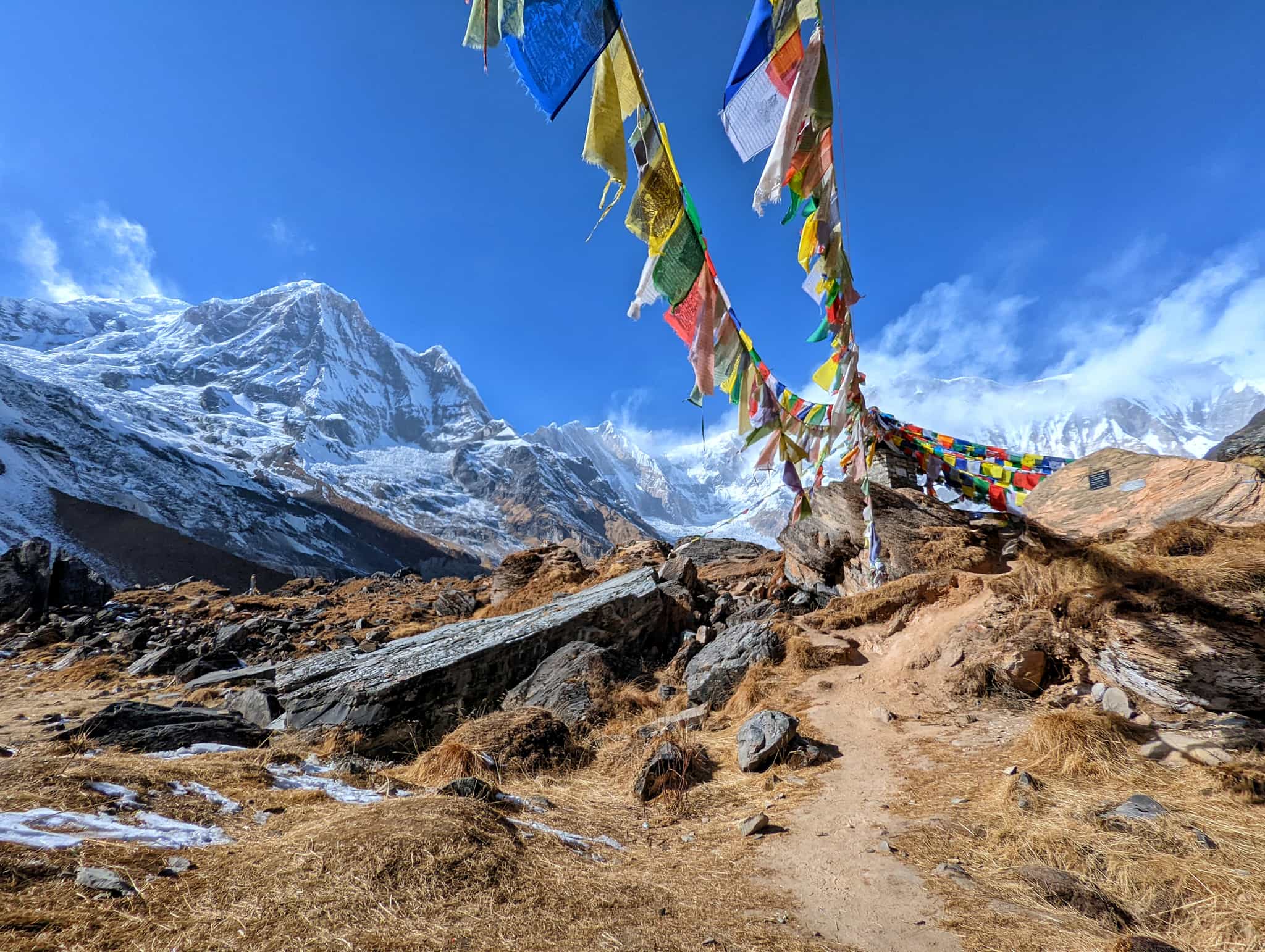
Trek the Annapurna Sanctuary Route
Explore remote Himalayan valleys, hike mountain trails and follow wild rivers to see some of the most incredible views on the planet
What's Included?
Activities & Certified Guides
All itinerary activities with local, expert, English-speaking guidesHotel & Teahouse
2 nights in Kathmandu, 2 nights in Pokhara and 9 nights in teahouses on the trailMeals
4 breakfasts and 2 dinners are includedTransfers & Porterage
Airport transfers, local transfers and transportation of your overnight luggagePermits
All entrance fees and permits are taken care ofSmall Like-minded Groups
Solo-friendly by design, join our small n’ sociable groups of up to 12 like-minded, active and outdoorsy people…
What's it like?






























Experience views that will leave you speechless, including Hiunchuli, Gangapurna and the awesome Annapurna Massif
Hike to Annapurna Base Camp (4130m) – summit of the trek and the reason this is one of the world's most famous hikes
Witness the endless colours of a Himalayan sunset from Ghorepani and watch dawn break from the top of Poon Hill
Want to extend your adventure in Nepal after the trek? See our alternative trip to add on a safari in Chitwan – eyes peeled for rhinos
Key Information
Day 1
Kathmandu awaits
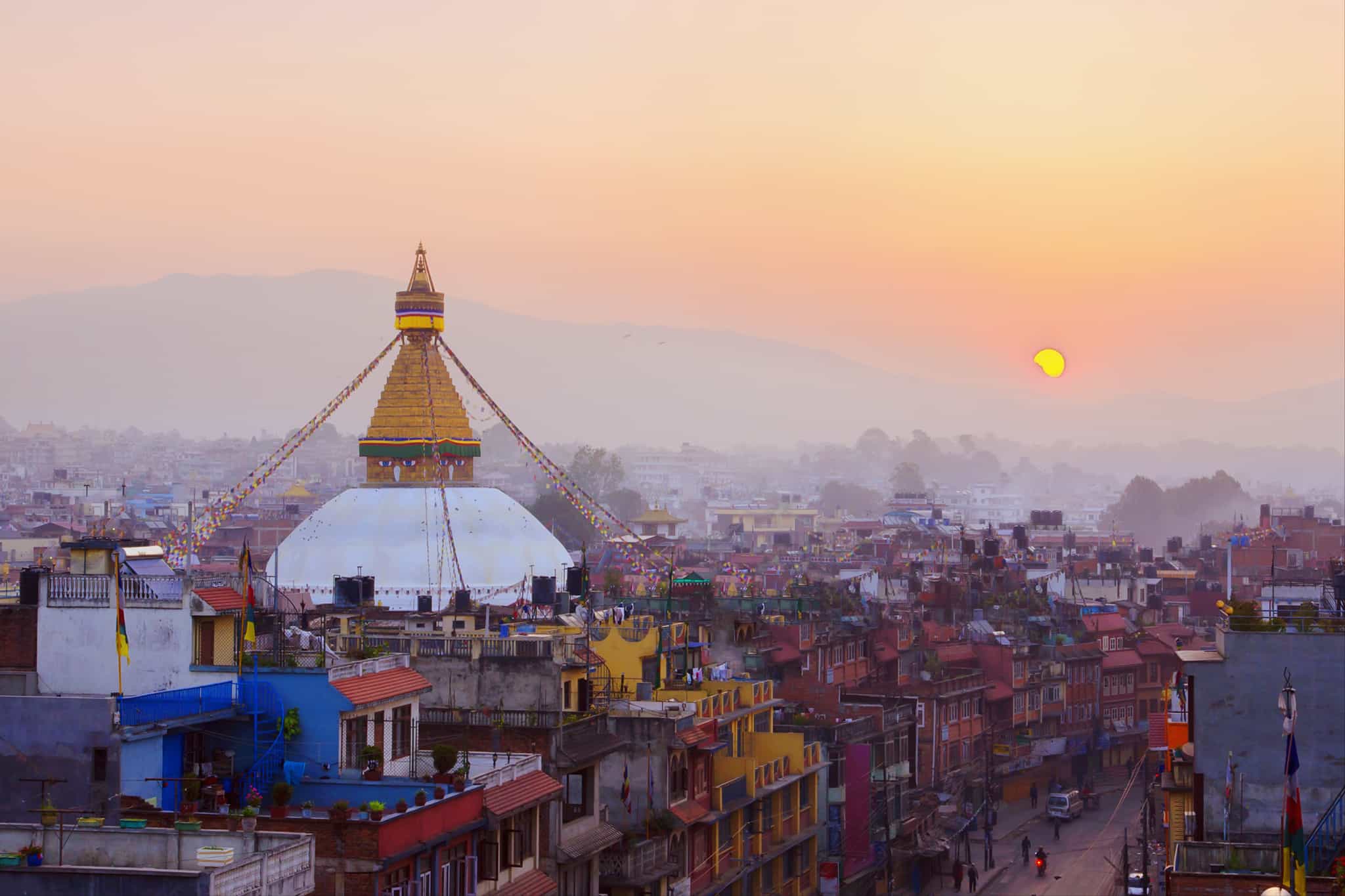
Check into your hotel in Thamel, the heart of the sensory overload that is Kathmandu. After meeting your guides and making any last-minute plans for the trek, finish the day with a group dinner alongside the rest of your team.
Day 2
The road to Pokhara
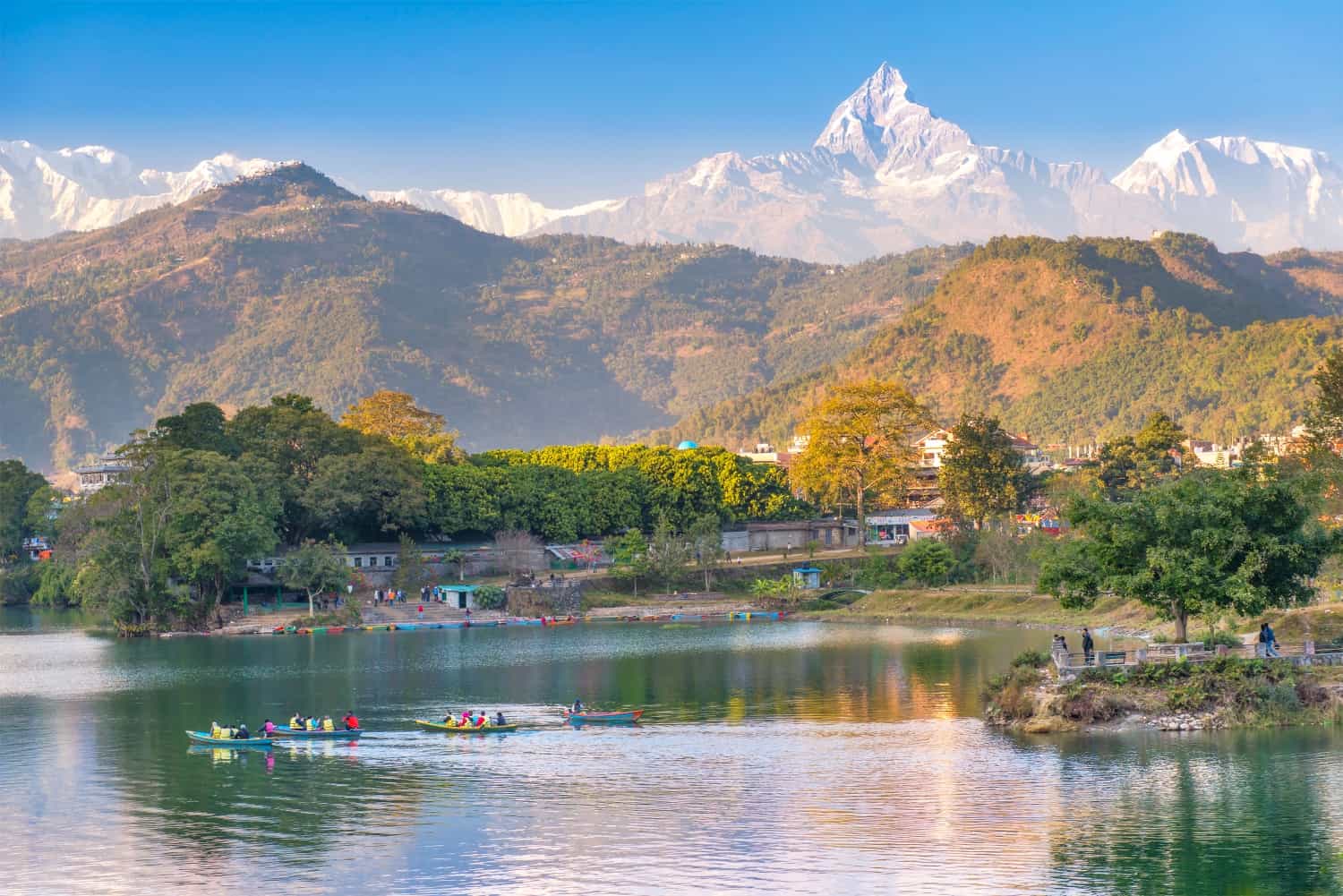
Driving
Drive to the lakeside city of Pokhara (approximately eight hours away) – the gateway to your trek. After road-tripping through some mind-bendingly beautiful Himalayan scenery and terraced farmland, settle into your hotel and soak in the tranquillity as you prepare for your first full day of hiking in the morning.
Day 3
The trek begins
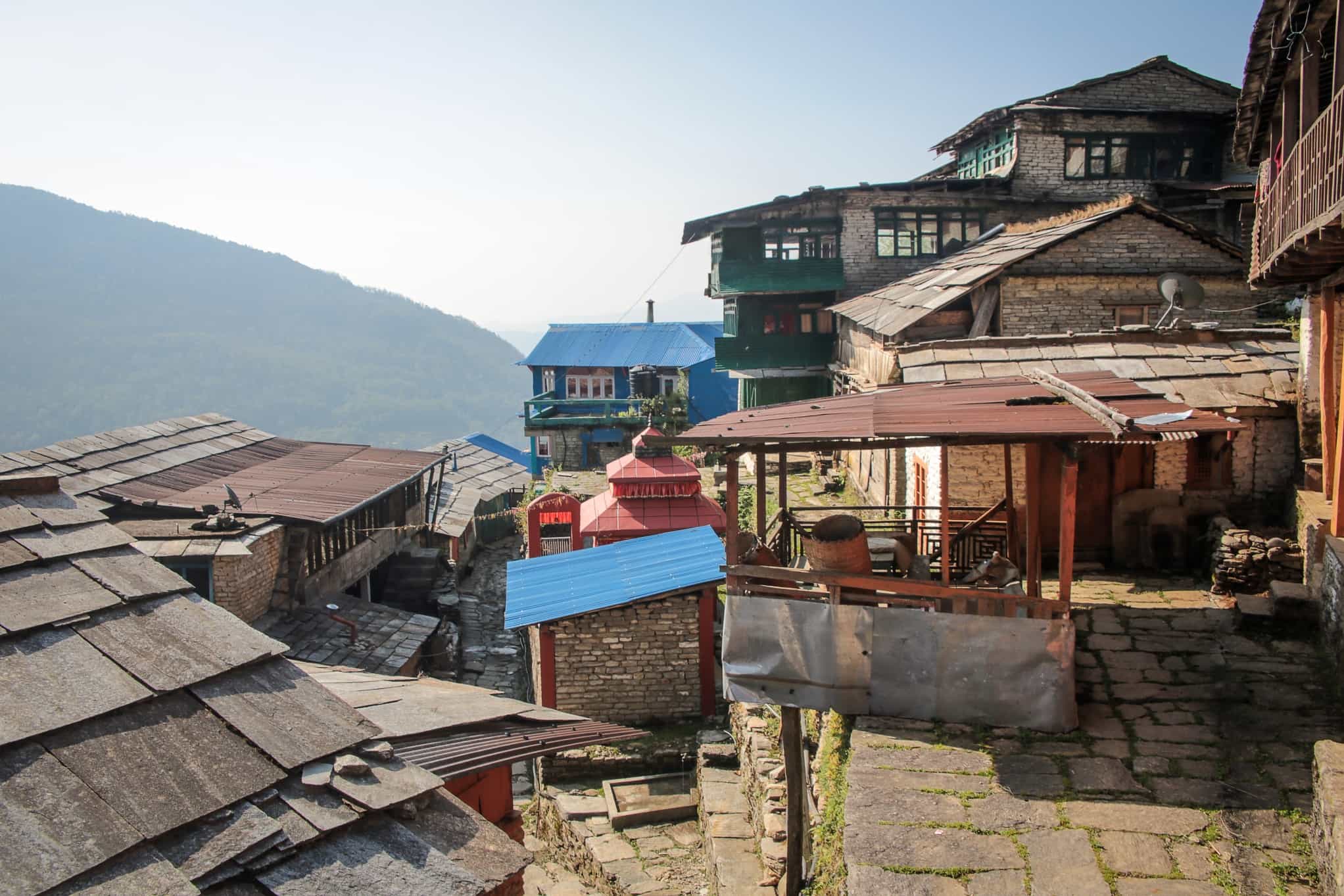
Hiking
Take a short scenic drive (about two hours) to Nayapul and set off from the trailhead, taking your first steps along the path that gradually ascends through dense forest, passing remote waterfalls and villages along the way. Tuck into lunch with an epic view of Mount Machapuchare (6993m), then cross a suspension bridge and begin the long, steep climb up a stone staircase all the way to Ulleri. This will be one of the most challenging stretches of the whole trek, but your guide will help with the pace so that it's manageable for your group. Once at the village, refuel with a well-deserved hot meal and enjoy your first night in a Nepalese teahouse.
Day 4
Ulleri to Ghorepani
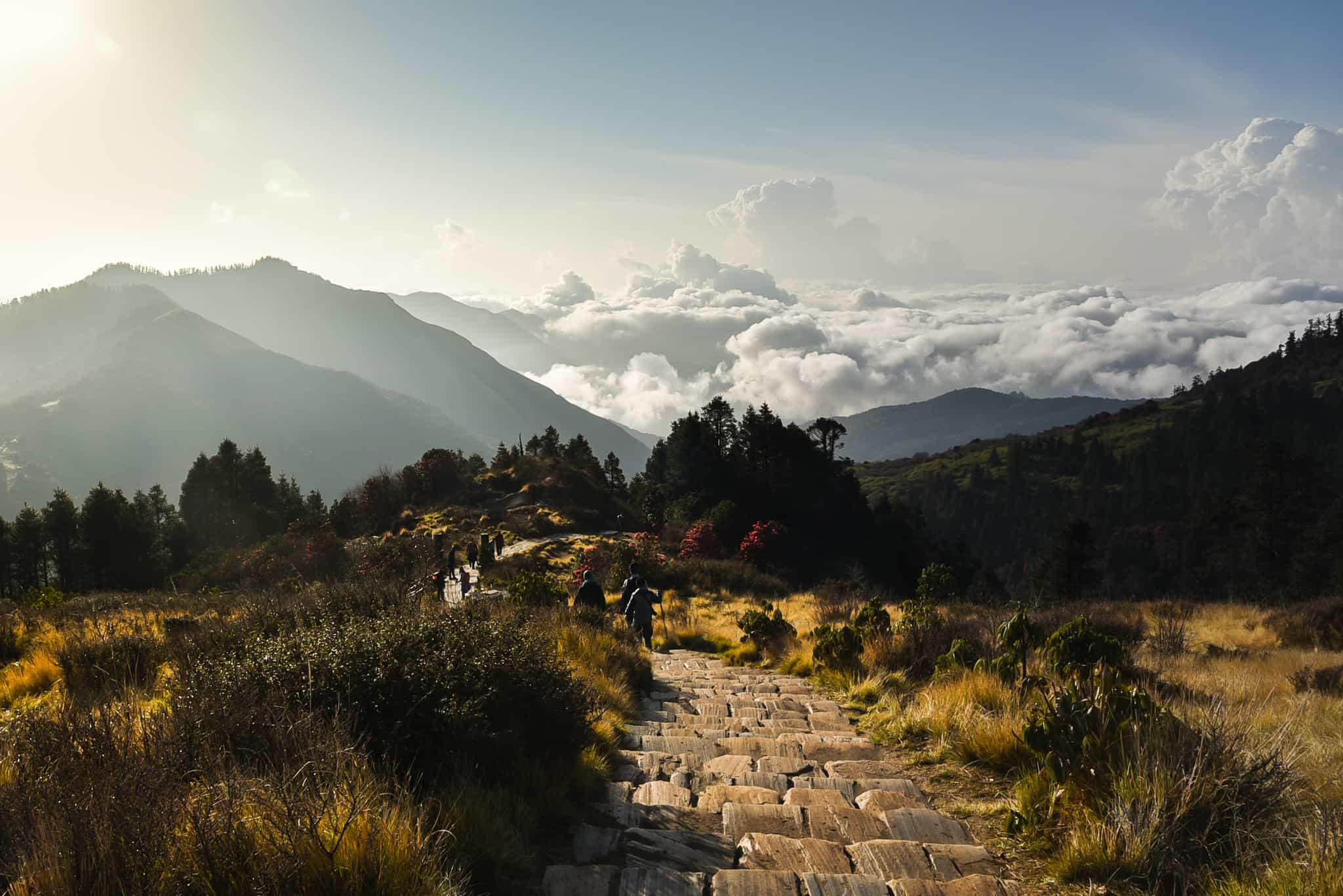
Hiking
Enjoy a morning coffee as you soak up the panoramic view from your teahouse and prepare for a moderate uphill trail through a mixed forest of oak and rhododendron. If you're travelling in the early spring, the area will be covered in colourful flowers – a true spectacle of nature. Camera ready, head straight up the nearby mountain, catching glimpses of Hiunchuli (6441m) and Annapurna South (7219m). After another lunch with world-class views, continue on to Ghorepani, home to the Magar people, in time for a special sunset over the Himalayas.
Day 5
Ghorepani to Chuile
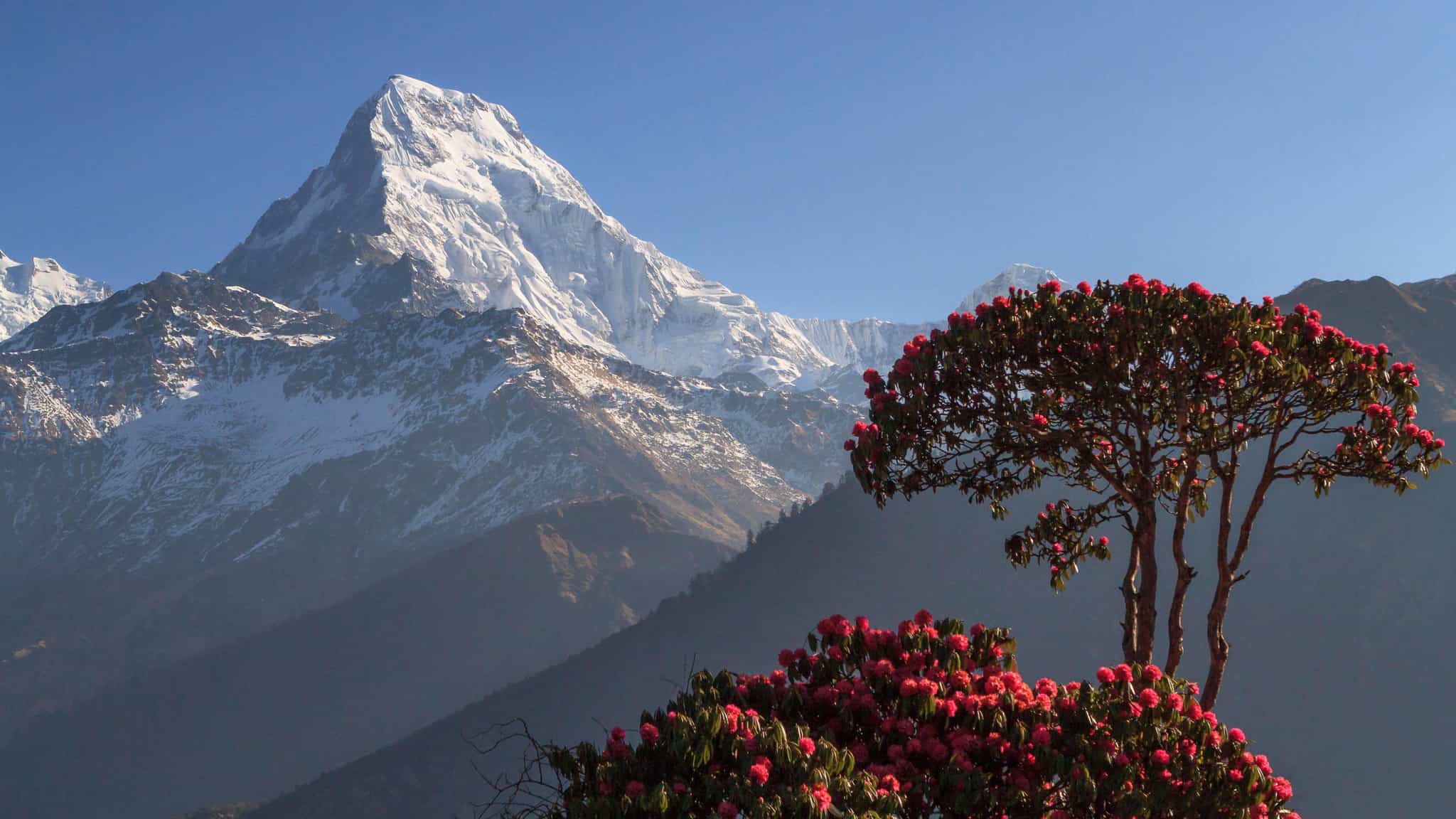
Hiking
Set off before dawn and hike to the top of Poon Hill (3210m, about an hour's walk uphill), famous for its epic mountain views, just in time for the sunrise of a lifetime. Backtrack to Ghorepani for breakfast, then descend steeply through the rhododendron forest negotiating yet more stone steps to Deurali Pass (3210m). Cross a small stream by bridge, grab lunch surrounded by a beautiful lush forest and begin the short but steep ascent to Tadapani village – eyes peeled for Annapurna South and Machapuchare ('Fishtail' Mountain). From there it’s a slow descent to tonight’s destination, the village of Chuile.
Day 6
Chuile to Sinuwa
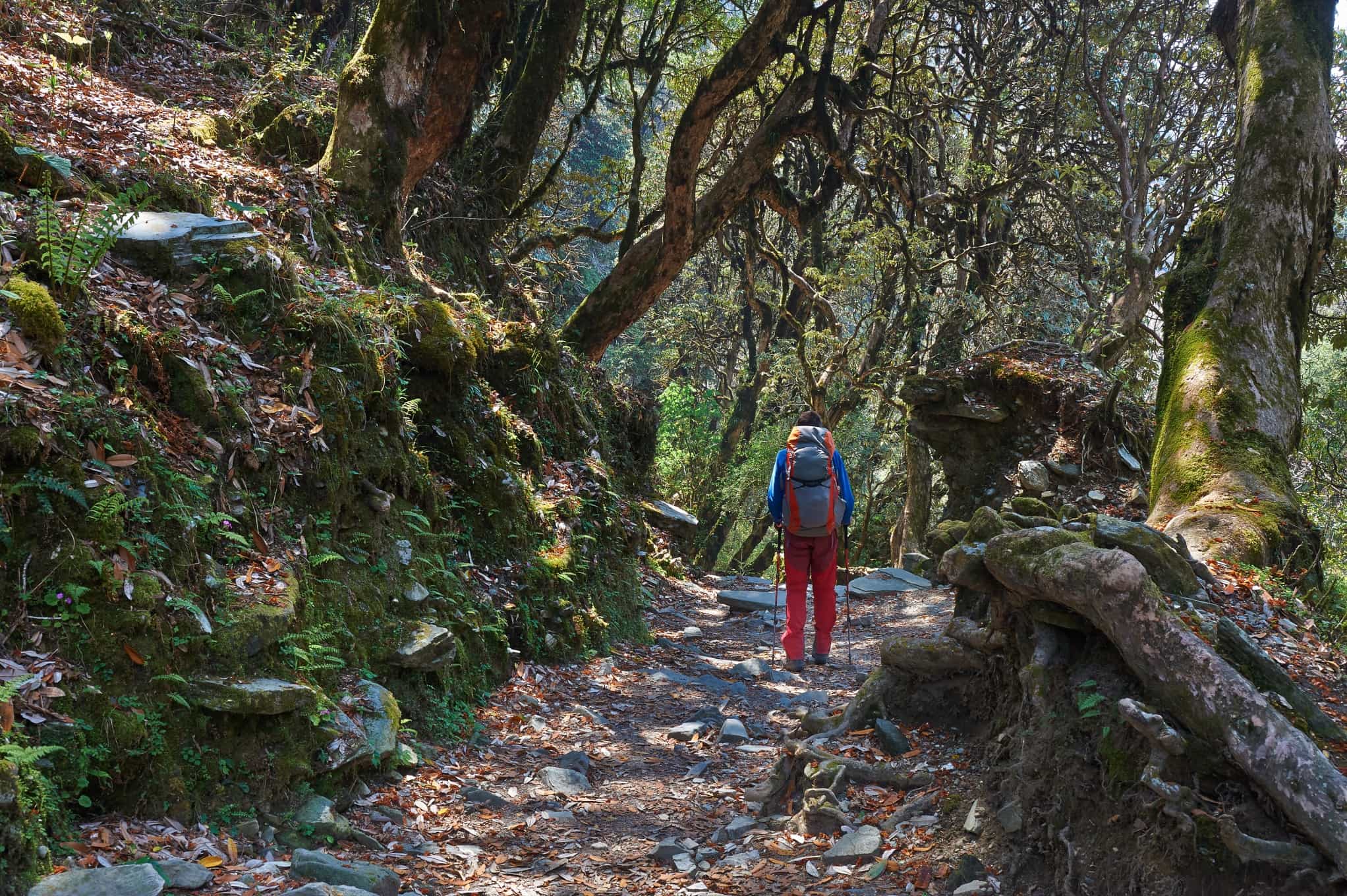
Hiking
Greet Machapuchare peak from your teahouse as you enjoy breakfast, then set off following the trail downhill through sparse settlements to Kimrong Khola. See the landscape change by the second as the forest thickens into untamed jungle. After following the trail downhill to Ghurjung there's a steep ascent to Chhomrong, the last permanent village in the valley. The route undulates once more as a stone staircase leads down to the river and then climbs steeply up the opposite side of the valley to tonight’s destination, Sinuwa, overlooking again the beautiful Machapuchare.
Day 7
Sinuwa to Himalaya
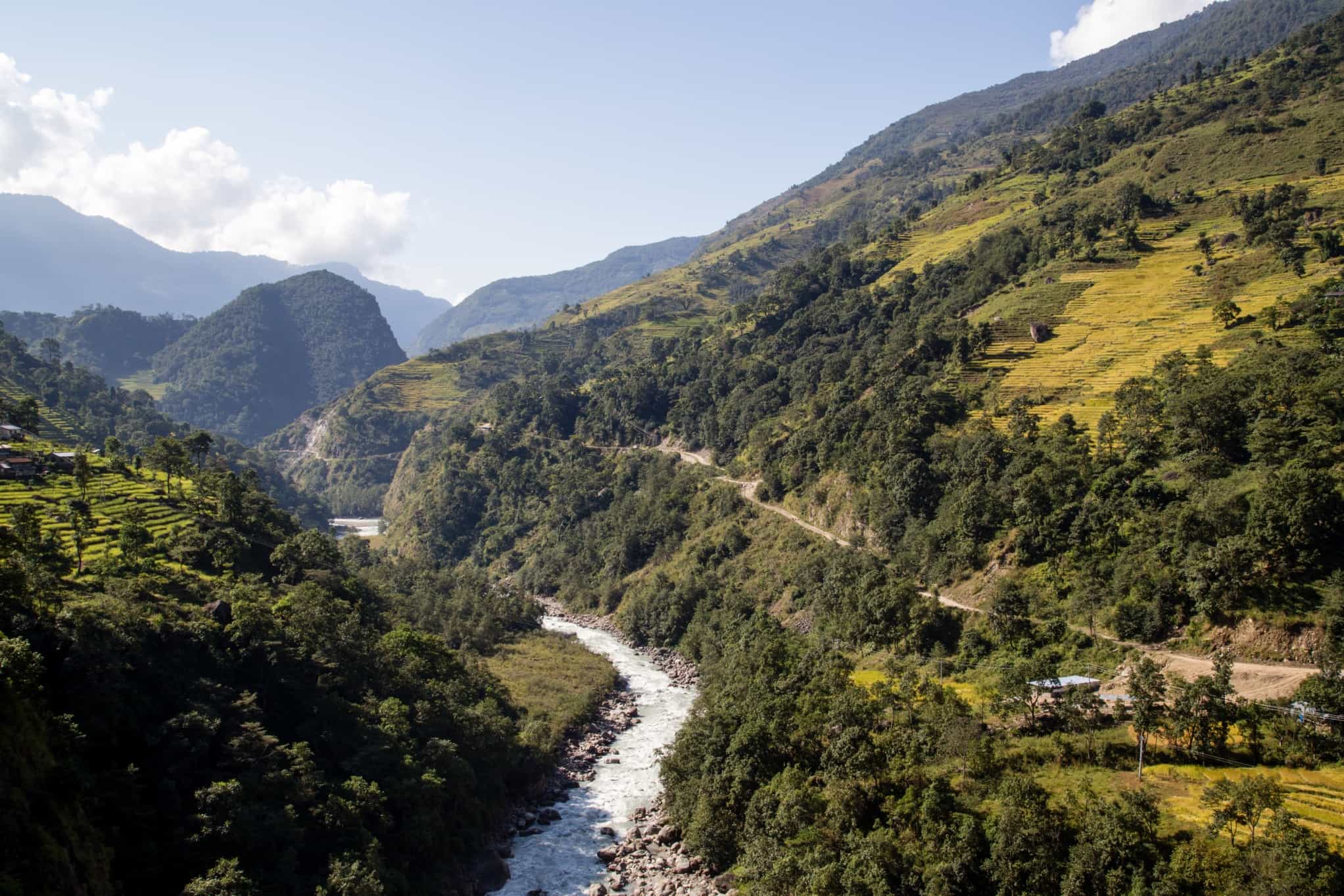
Hiking
Descend via stone steps through dense jungle and follow an undulating trail along the banks of a wild river as it weaves its way through some of the most challenging terrain on the entire trek, until you reach the village of Bamboo. The mountaintop views make all the hard work worthwhile. After resting up, continue through the forest to tonight's stop – the perfectly named village of Himalaya.
Day 8
Machapuchare Base Camp
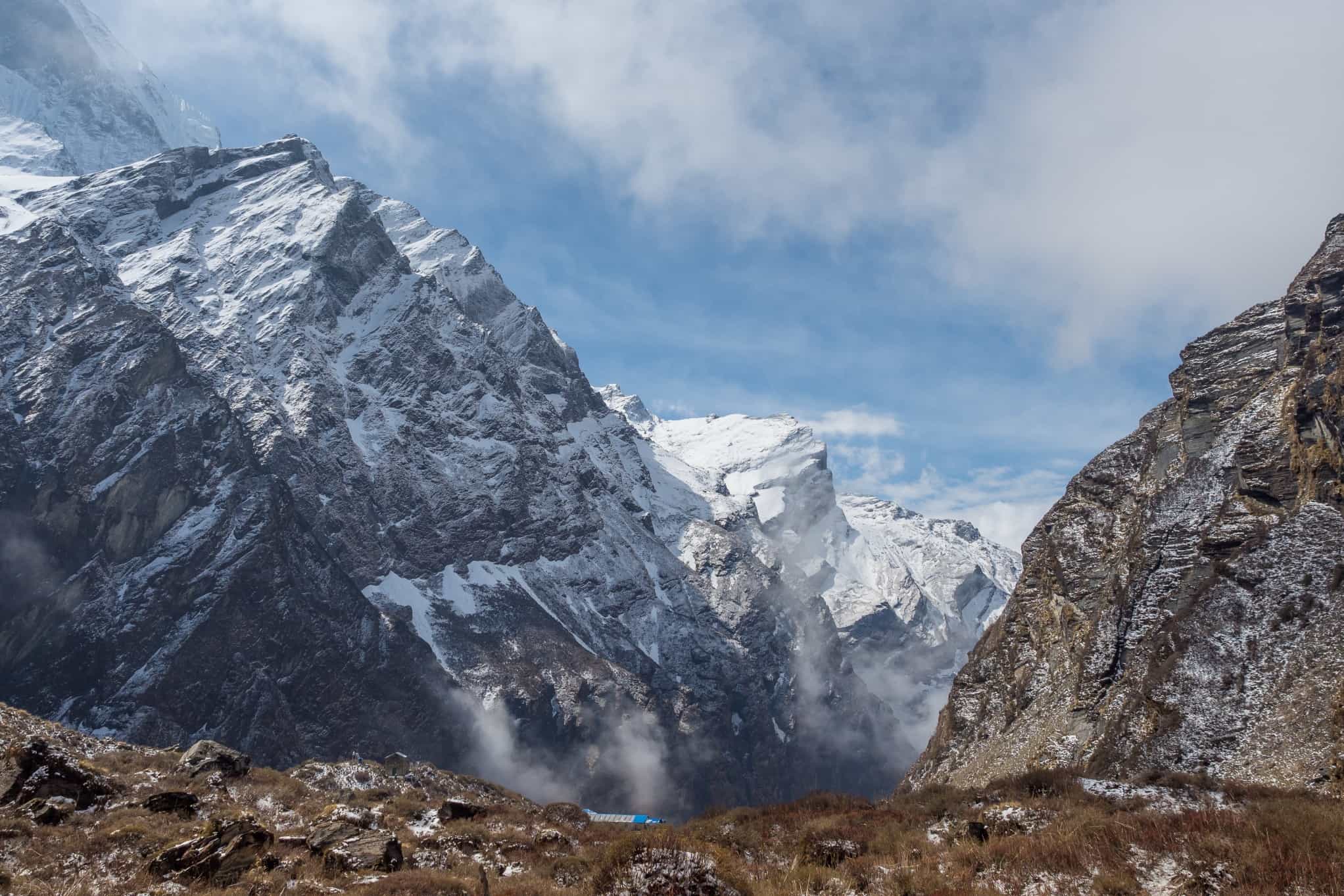
Hiking
Start the day with a steep ascent through oak and bamboo forest to Hinku Cave, then push onwards and upwards on a rocky trail crossing some steep ravines as well as a few small streams on wooden bridges. As the trail reaches Deurali, negotiate the glacial river bank and ascend through birch forest, flanked by multiple layers of snowy and sharp ridges on both sides. Finally, emerge above the tree line and over the mountaintop to Machapuchare Base Camp. Try not to lose the power of speech as you look out on some of the most spectacular vistas on the entire trail, including Hiunchuli, Gandharyachuil, Gangapurna and the awesome Annapurna Massif. Relax, recover and then enjoy a Himalayan night sky filled with stars.
Day 9
Annapurna Base Camp
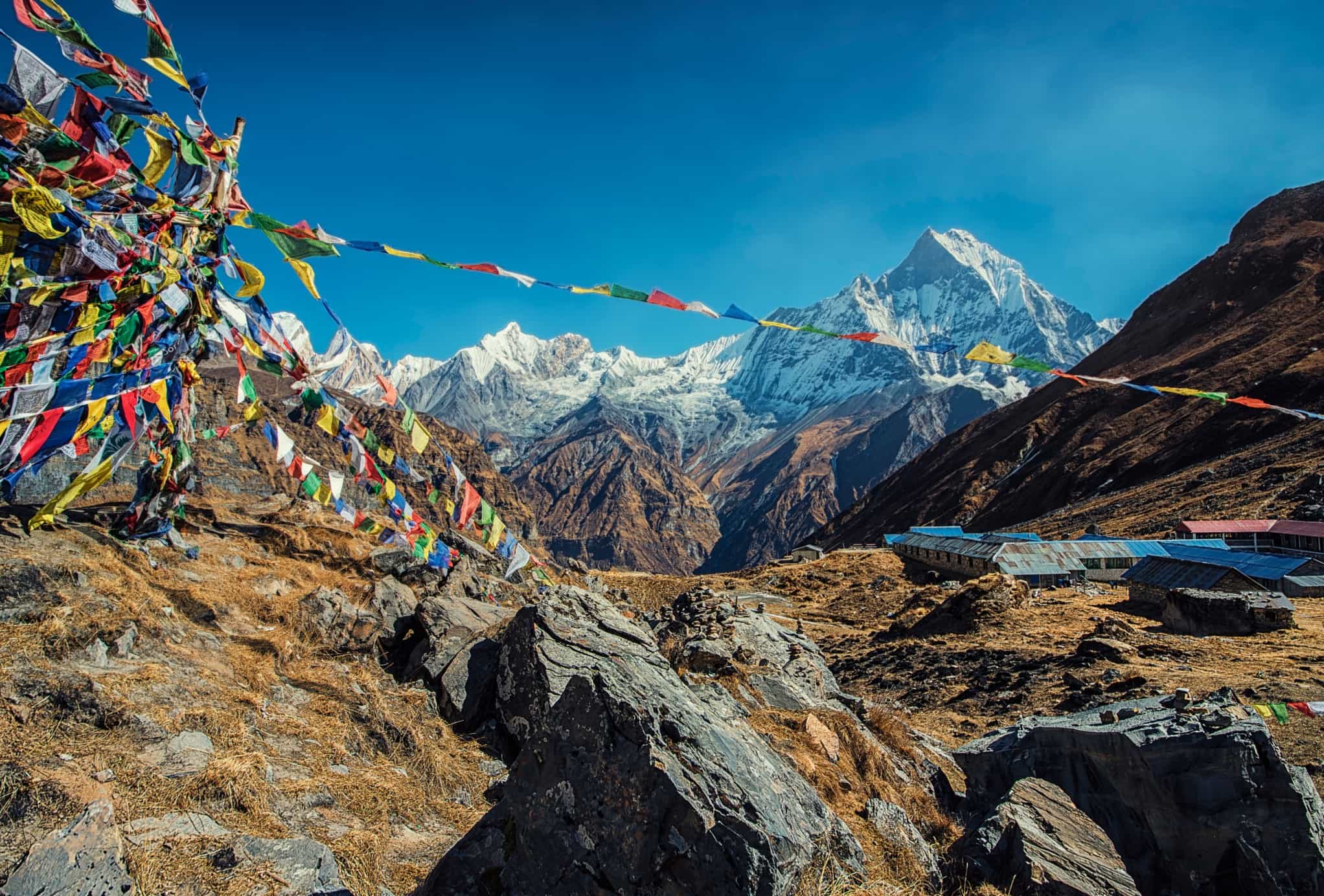
Hiking
Enjoy breakfast with magnificent views of surrounding mountains, then leave the greenery behind and head into the snow-blanketed and rocky landscape that lays above. Though the trail ascends gradually and does not steepen, you may feel the effect of altitude on your breathing and pace. Hike the final stretch to Annapurna Base Camp (4130m) – the summit of the entire trek and a major reason why this is one of the most famous treks on the planet. If the weather is clear, enjoy a magical sunset you'll remember for a lifetime.
Day 10
Annapurna Base Camp to Bamboo
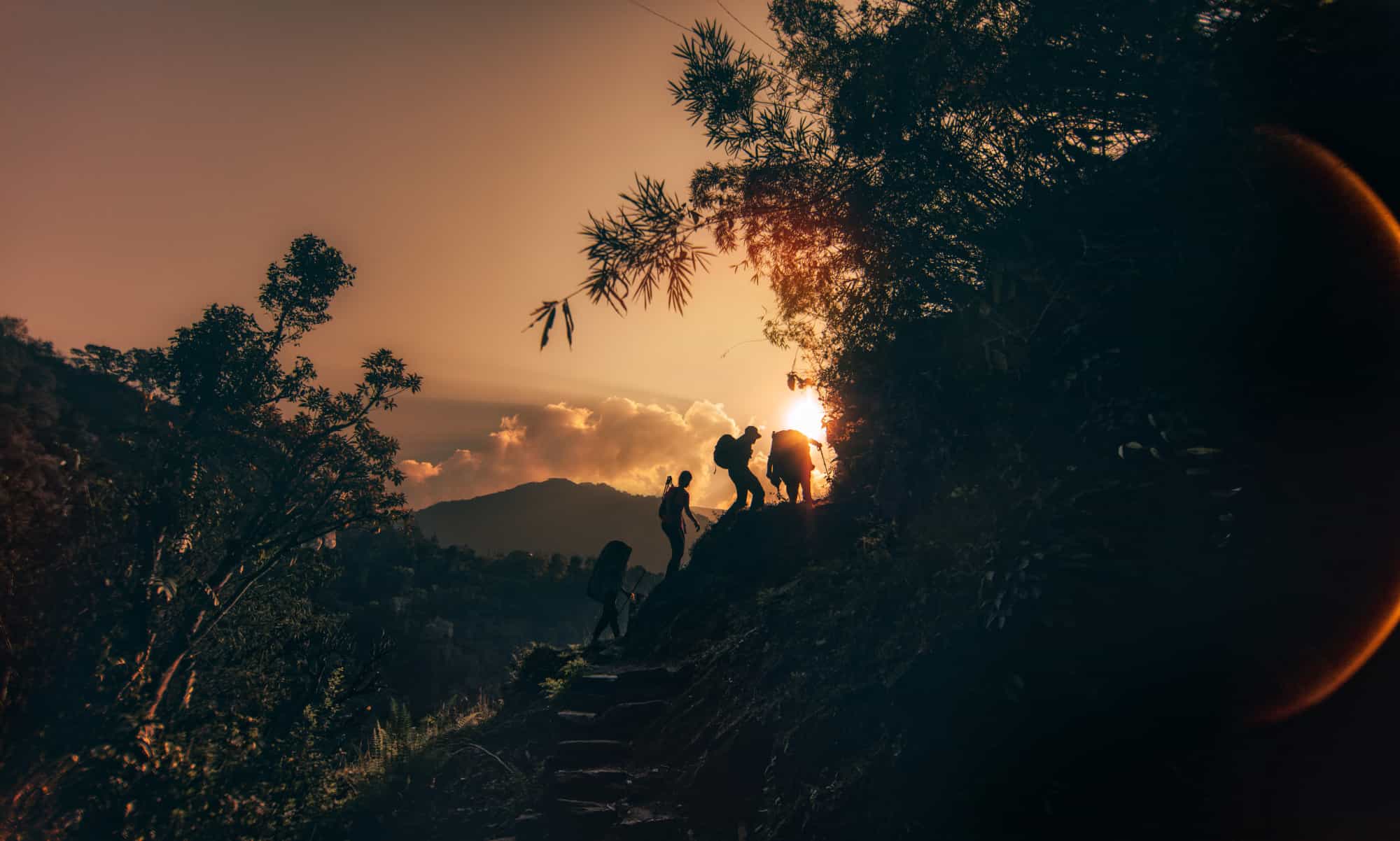
Hiking
Rise early to glimpse the breathtaking view of giant peaks such as Annapurna I, Annapurna II, Annapurna III, Annapurna South, Gangapurna, Hiunchuli and Machapuchare as they emerge at the glow of sunrise. Then get back on the trail, this time heading downhill, soaking in the 360-degree mountain views before dropping back down to the forested slopes with a long descent to the village of Bamboo for the night.
Day 11
Last night in the mountains
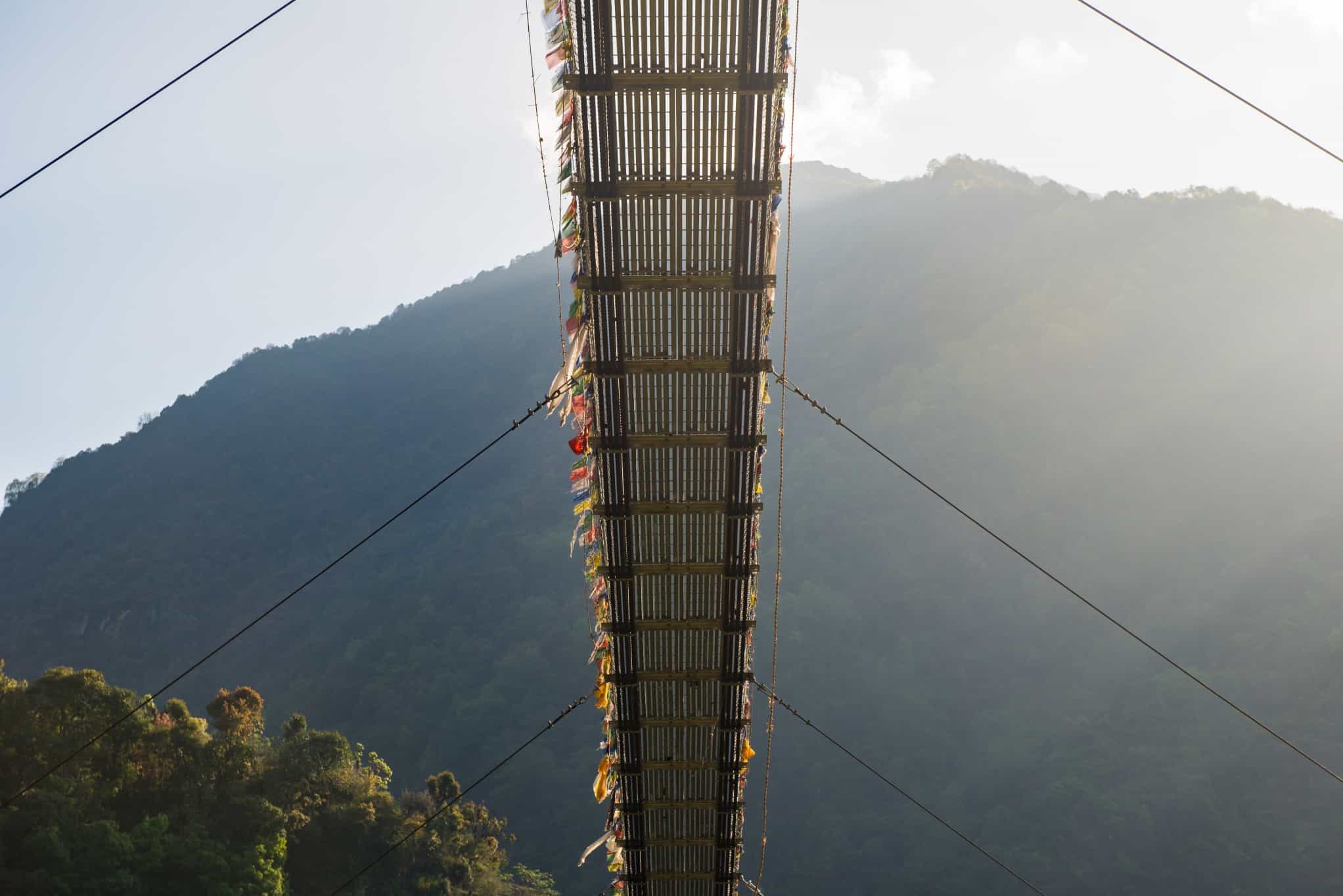
Hiking
Climb to Khuldighar on stone staircases and follow the gentle downhill trail and stone steps that lead to Chomrong Khola. From there, it's a short uphill walk through the village, followed by a downhill section to Jhinu Danda. From there, you'll head to the bubbling hot springs at Jhinu Danda for some much-needed downtime.
Day 12
Return to Pokhara
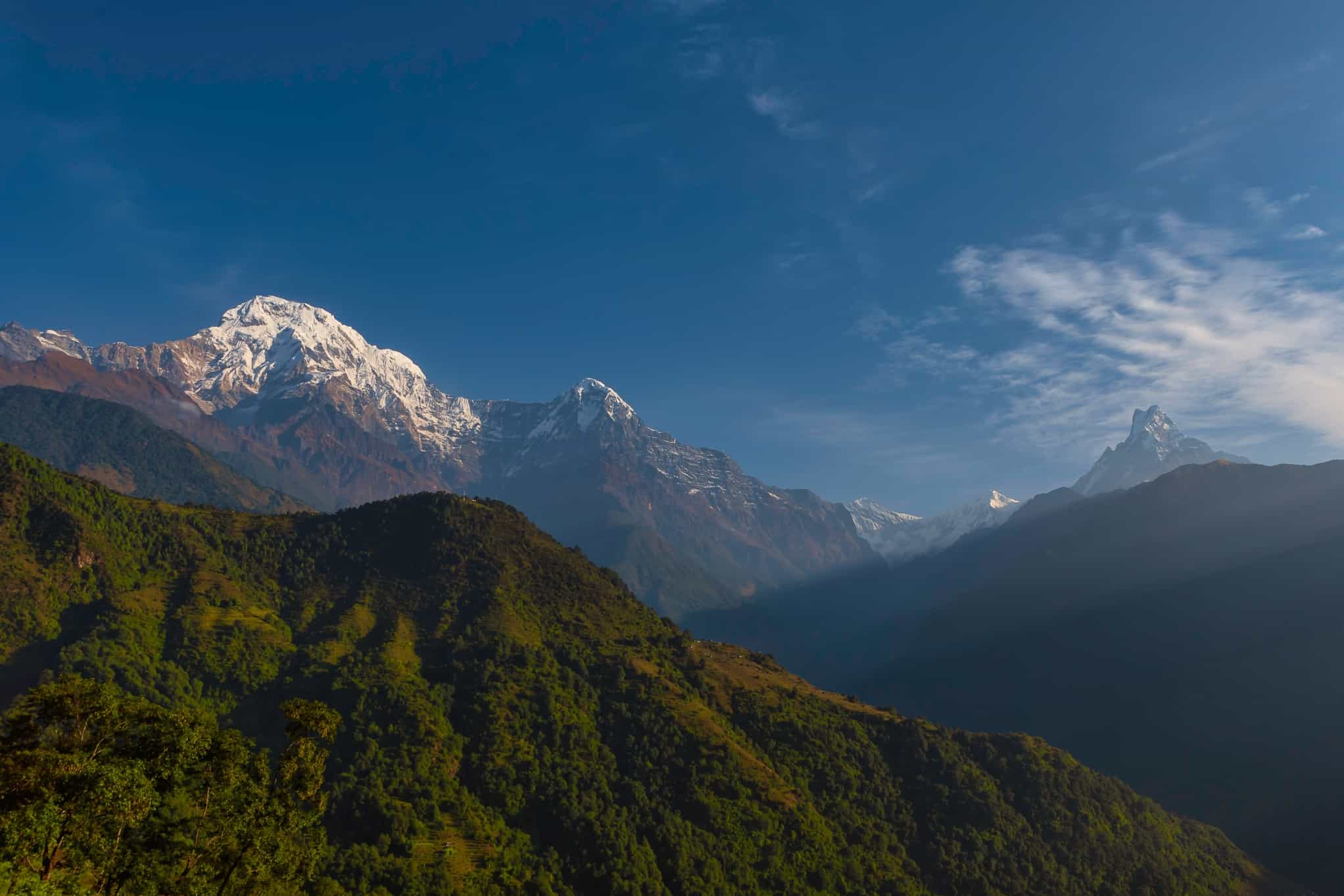
Hiking
Begin your last day of trekking with some mesmerising views of the mid-hills of Nepal. Breathe in that mountain air, take some final photos and then enjoy your final descent into Naya Pul, from where you’ll be driven back to Pokhara. Head out for a celebratory dinner with your crew, then spend the rest of the night relaxing, partying beside the lake, sleeping – whatever you want, you’ve earned it!
Day 13
Back to Kathmandu
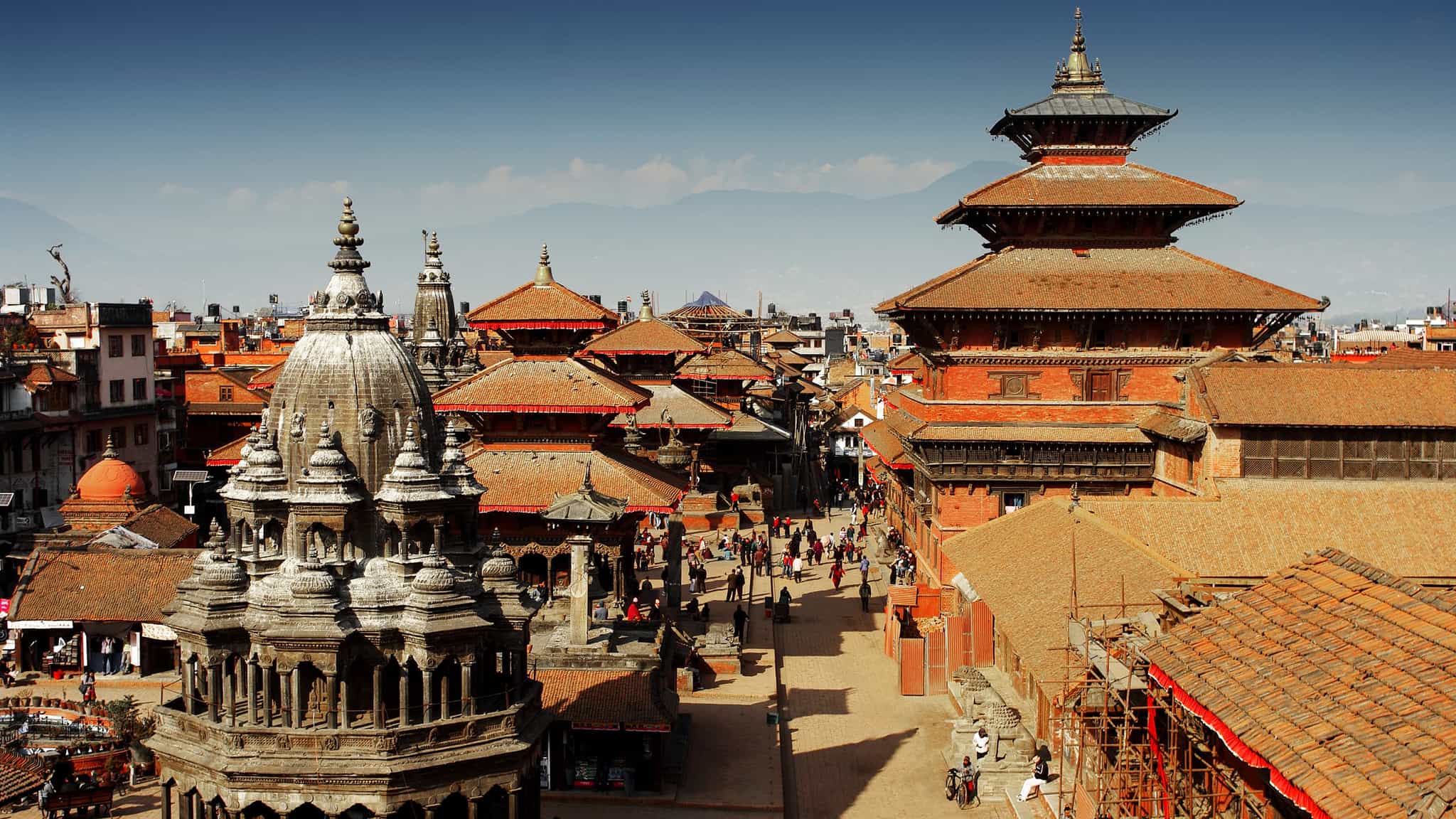
Driving
Take a bus through the Himalayas (approximately eight hours) back to Kathmandu and your hotel in Thamel. Enjoy some downtime in Nepal’s chaotic but intoxicating capital.
Day 14
Last chance to enjoy Nepal
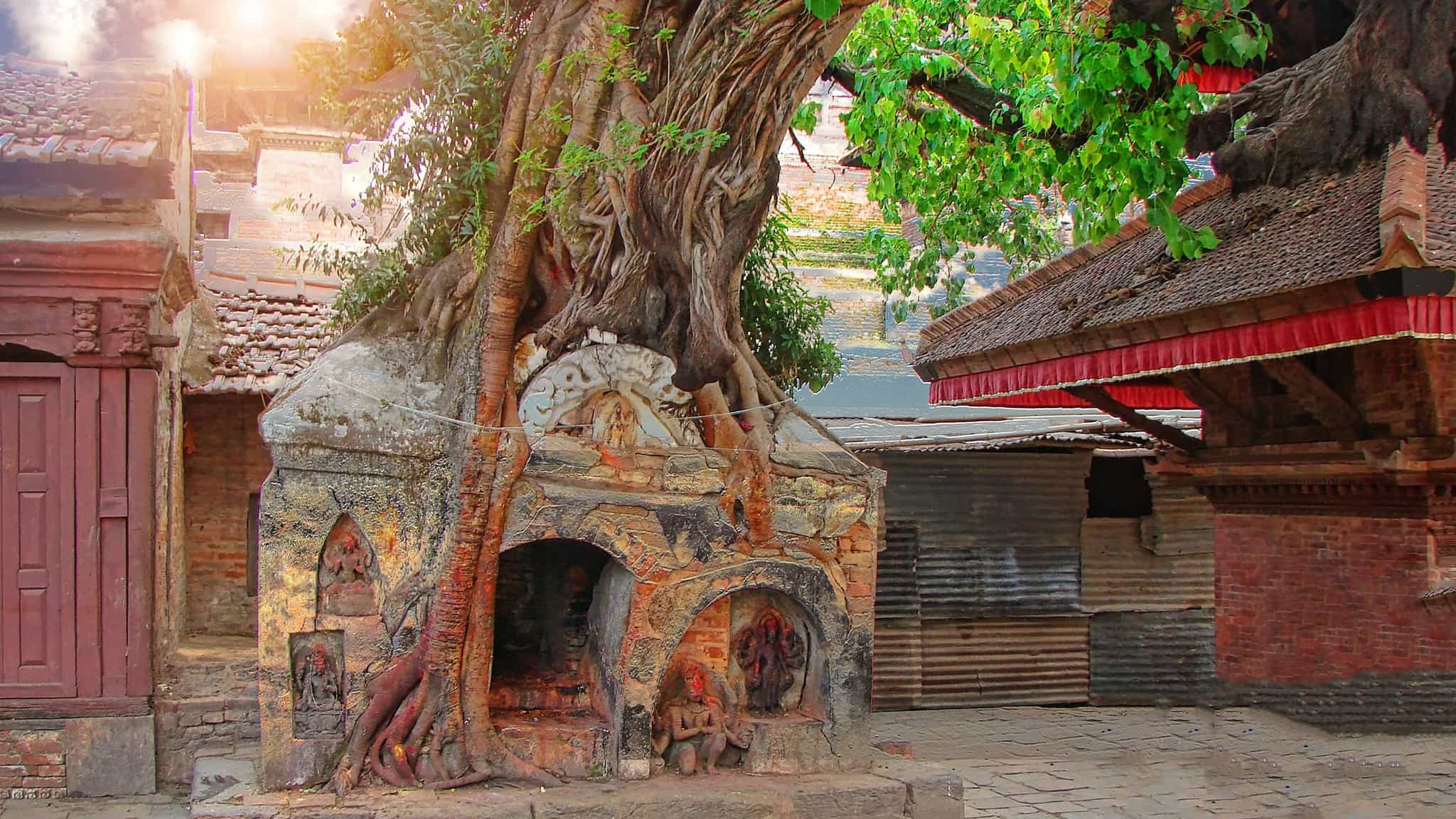
Enjoy a lie-in followed by breakfast at your hotel, then spend your last day exploring the city before returning to the airport and back to reality.
Day 1
Breakfast
Lunch
Dinner
Day 2
Breakfast
Lunch
Dinner
Day 3
Breakfast
Lunch
Dinner
Day 4 – Day 11
Breakfast
Lunch
Dinner
Day 12
Breakfast
Lunch
Dinner
Day 13
Breakfast
Lunch
Dinner
Day 14
Breakfast
Lunch
Dinner
What is the food like?
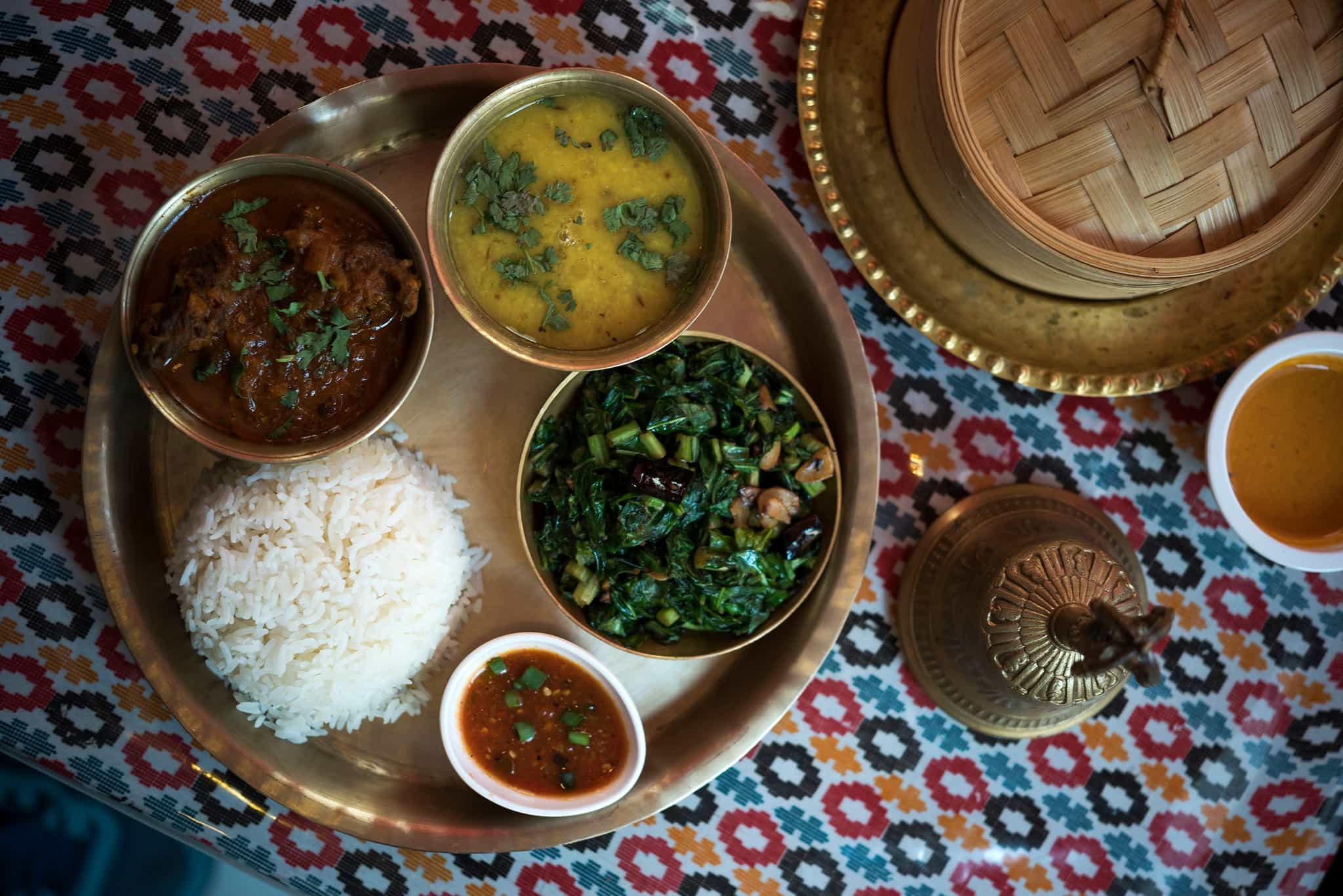
Breakfast is usually hot porridge, muesli or Tibetan bread served with an omelette or boiled eggs.
The dinner menus in the teahouses are very similar at every stop and there will usually be a choice of traditional Nepalese dhal bhat (a mixed plate of lentils, rice, vegetables and pickles – delicious and healthy), momos (Nepalese dumplings), mixed noodles, pasta and even pizza. Although meat is available at some teahouses, we suggest that you ask your guide for their advice regarding its consumption, as it tends to depend on how far it has travelled as to whether or not it is a safe option.
Dairy-free, vegan or vegetarian diets can be catered for while trekking, although meals may get a bit repetitive – dhal bhat will likely be your go-to staple. Gluten-free/coeliac diets are tricky to cater for on teahouse treks (beware that powdered soups and seasonings used often contain gluten, and cooking oil is commonly reused and may cause cross-contamination). Please explain your dietary requirements to your guide so that they can assist when ordering, and bringing along some extra food/snacks is advisable.
What is the accommodation like?
Kathmandu
You’ll stay in a hotel in Thamel close to the main shopping area and heritage sites. Expect a twin-share ensuite room, with air-con and WiFi included.
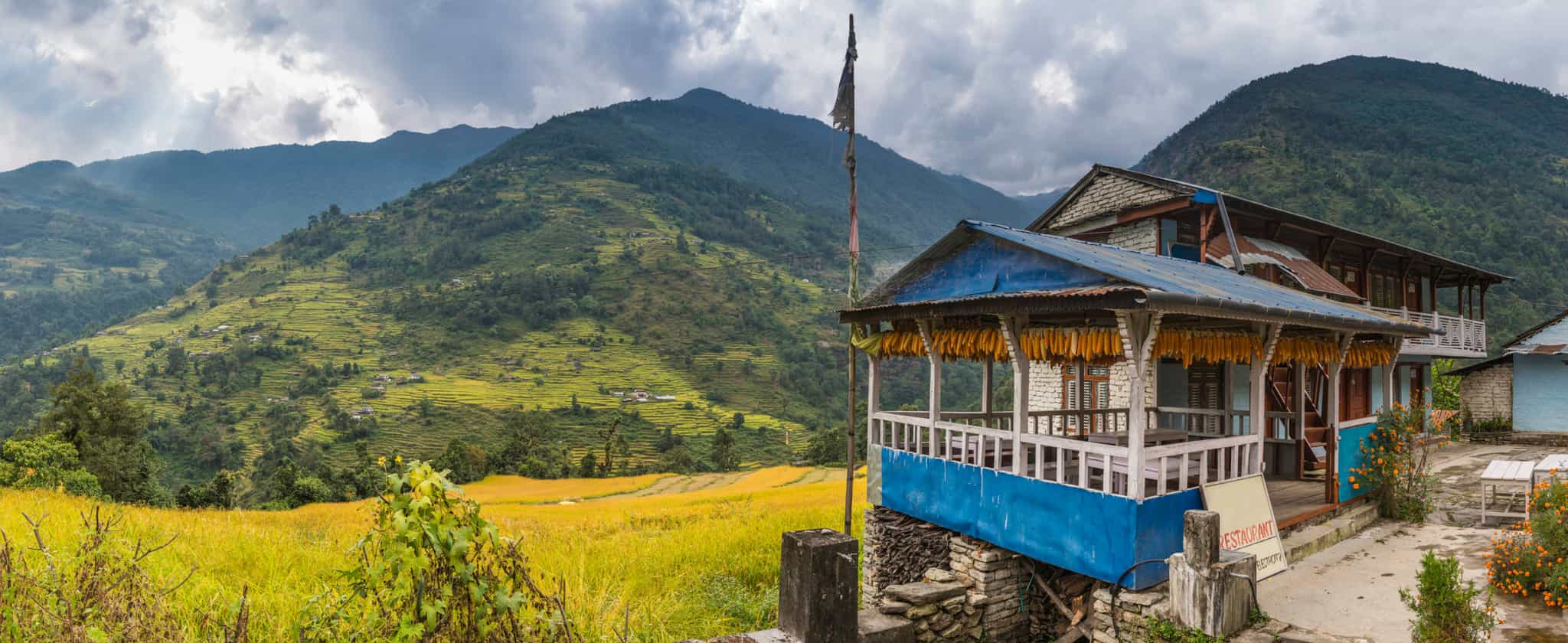
On the trail
You’ll be staying in teahouses – mountain lodges with a communal dining area and basic toilets, which are usually sorted by gender. WiFi, phone charging and hot showers are often available for a small cost. Some nights the rooms will be multi-share.
Pokhara
You'll stay in a hotel near the lake on a twin-share basis, close to local bars and restaurants.
Upgrades
For solo travellers looking for their own space, an optional private room can be booked – see Optional Extras. This only applies to the nights spent in hotels, and is subject to availability. Please request this at the time of booking.
This trip has been rated as Moderate
The Annapurna Sanctuary is the ideal trek for those who are keen to experience the Himalayas but aren’t quite ready for the longer, higher altitude treks such as Everest Base Camp or Annapurna Circuit. Ideally you should have some experience of trekking but the trip is designed with plenty of time factored in to rest up and enjoy the incredible views. Although the trek is graded as moderate, don't underestimate the effort it takes to complete. There are a lot of stone staircases on this route as well as some longer days and steep steady climbs, so you may want to think twice if you suffer from bad knees.
This is one of the best routes in Nepal for acclimatisation as the ascent rate is well-paced. Still, it is important to note that trekking at altitudes above 3000m/10,000ft is more demanding on the body than walking at low elevations. Your guide will set the pace and as with all altitude treks, the theme is ‘slowly slowly’ to help you adjust to the altitude. A good level of fitness and stamina will make the going more enjoyable, so consider factoring in some training beforehand – we advise doing at least a couple of weekends of back-to-back days walking.
What will I need to carry?
This trip includes one porter for every two trekkers. They will carry up to 20-25kg of kit so your overnight bags and spare clothes will be transported for you (maximum 12kg per person). You will only need to carry a daypack with essentials in (extra layer, snacks, water, suncream, camera etc).
The main trekking season in Nepal is from September to May (before or after the monsoon). The trekking season can be split into three seasons:
Winter (Dec-Feb): Despite being seen as ‘off-season’ this is often the best time to trek in Nepal. The nights can be very cold (down to at least -10ºC/14F) at Annapurna Base Camp but the trails are quieter and the mountain views are often at their best due to the crisp dry air and clear sunny skies.
Pre-Monsoon/Spring (Mar-May): Spring (particularly April and May) is the mildest time to trek in Nepal and magnificent rhododendron forests bloom along the Annapurna Sanctuary route at this time of year. It will be hot in the lowlands (30ºC/86F) but more comfortable as you gain elevation. Rain is not uncommon and snow cover is likely at Base Camp. Night-time temperatures should remain above freezing for the most part but can still drop below zero at Base Camp.
Post-Monsoon/Autumn (Sep-Nov): The rains can sometimes persist into September but in general this time of year is characterised by sunny, relatively mild days and clear skies. It can get cold and windy at higher altitudes and nights can be cold (typically -5ºC/23F) at the high points.
Of course, mountain weather is notoriously hard to predict and snow and extremes of temperature can be expected on any trip so come prepared.
The Area
Logistics
Starts
Tribhuvan International Airport, Kathmandu
Arrive by 16:00 on Day 1
Ends
Tribhuvan International Airport, Kathmandu
Any time on Day 14
Transfers
Airport arrival and departure transfers are included no matter when you arrive and depart (even if booking extra nights before or after the trip), provided you have completed your passenger information form and have supplied your flight details in advance. On Day 1, your tour leader will arrange a group briefing before a welcome dinner, so we strongly encourage you to book a flight landing by 16:00 in order to be able to join this on time.
Travel options
There are regular flights to Kathmandu from major aiports across the UK and Europe.
Enjoy 12.5% Off Outdoor Gear
In need of a few more items? All bookings receive a 12.5% discount to use at Cotswold Outdoor, Snow + Rock and Runner's Need.
What do I need to bring?
- Day pack with rain cover (30 litre +)
- Rucksack or duffle bag (for the porters to carry overnight kit)
Clothes
- Waterproof jacket
- Lightweight down jacket
- Waterproof trousers
- Lightweight trekking trousers
- Hiking shorts (if trekking in the summer)
- Thermals (top and bottom, merino ideal)
- 2/3 trekking t-shirts/shirts
- Fleece or warm mid-layer
- Waterproof thick gloves
- Glove liners
- Hiking socks and lighter walking socks
- Wool hat
- Sun hat
- Spare underwear
- Buff or similar
- Swimwear (optional, for hot springs)
Shoes
- Worn in waterproof hiking boots
- Lightweight trainers (for the evenings)
- Flip flops or sandals
Sleeping
- 4 season sleeping bag
- Sleeping bag liner
- Pillow case (optional)
Other
- Trekking poles
- Travel towel
- Sun protection (sunscreen, sunglasses)
- 2 water bottles (1 litre each)
- Metal SIGG bottle (useful to fill with hot water to use as a hot water bottle at bedtime)
- Headtorch
- First aid kit and/or personal medication
- Water purification tablets/system
- Hand gel
- Biodegradable wet wipes
- Small biodegradable bags to take toilet tissue off the mountain
- Toilet paper/tissues
- 1 x passport photo for trek permit
- Powerbank
- Universal plug adaptor
- Book/kindle/cards for downtime
Winter departures only (end Nov-March)
- Gaiters
- Microspikes
- Extra warm layers (add an extra warm item to all key items above)
- Extra set of thermals (pair to walk in, pair to sleep in)
- Merino trekking socks
- Merino glove liners
This winter kit can sometimes be necessary even in the high season, depending on weather conditions. Your local host will contact you a week prior departure if any extra items are necessary. If you are unable to get them on time, you can also buy these items locally (see below).
What's available to hire?
The below can be rented in Kathmandu:
- Down jacket: costs approx. $1.5/day with a deposit of $50
- Sleeping bag (3 season only available): costs approx. $2/day with a deposit of $80
- Spikes (for winter departures only) costs approx. $1.5/day.
(Please ask your host if this is needed so they can assist you with how to arrange the hire)
What can you buy in Kathmandu?
Kathmandu has many outdoor gear shops - some are real with kit that is the same price you will find it at home and some are filled with cheaper imitation gear that may not be of the same quality. You will, however, find a soft duffel bag easily that the porters can carry.
Please remove all unnecessary packing before you leave home and ensure you take all plastic off the mountain to be disposed of in Kathmandu.
Optional Private Room Upgrade
Payable Before Departure
Optional Private Room Upgrade
… Per Person
Extra night in Pokhara (Single Room)
Payable Before Departure
Extra night in Pokhara (Single Room)
…
Extra night in Pokhara (Twin/Double Room)
Payable Before Departure
Extra night in Pokhara (Twin/Double Room)
…
Pre/post-trip accommodation in Kathmandu (Single)
Payable Before Departure
Pre/post-trip accommodation in Kathmandu (Single)
…
Pre/post-trip accommodation in Kathmandu (Twin/Double)
Payable Before Departure
Pre/post-trip accommodation in Kathmandu (Twin/Double)
…
ABC May 2024
Just returned from ABC - Annapurna Sanctuary Route.
A really great experience and a big shout out to Tika our guide and the porters who without the trip would have not been possible. They really went the extra mile so really big thanks to them.
The scenery is amazing in the clear days the views were amazing.
The tea houses were pleasant and Tike and the team always planned ahead so we stayed and ate in the best places. The food was great but kind of repetitive.
One thing I would say which I think other reviews have pointed out but the distances walked seemed to be more than what’s advertised - and also there is a lot of stairs - however it was still manageable just with the heat I did struggle for the first few days however once you get past day 4 I feel like things got easier.
Our Purpose
To protect our world's wild places, one adventure at a time.
Positive impact adventure travel

